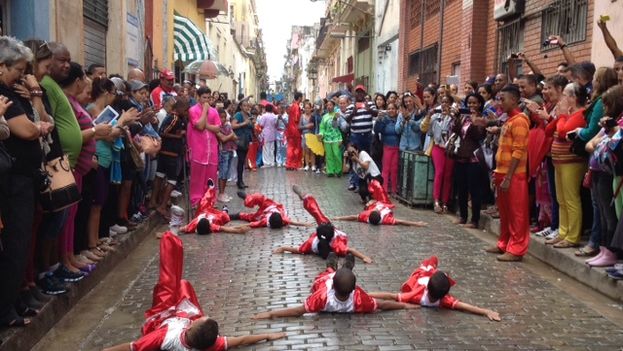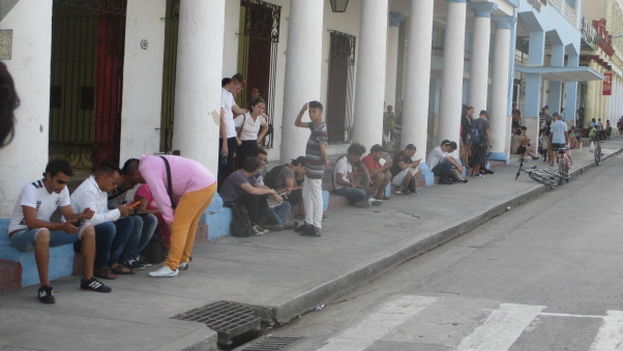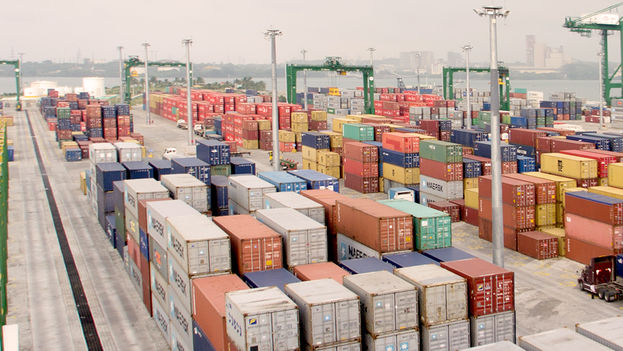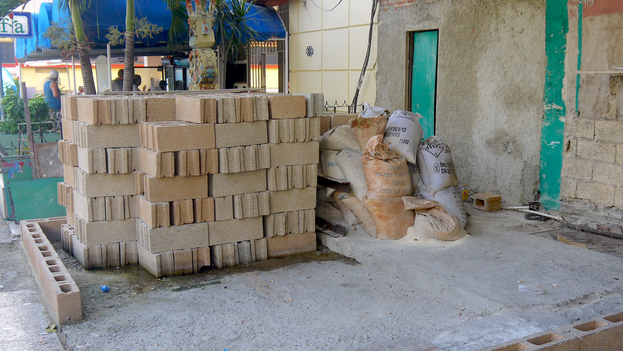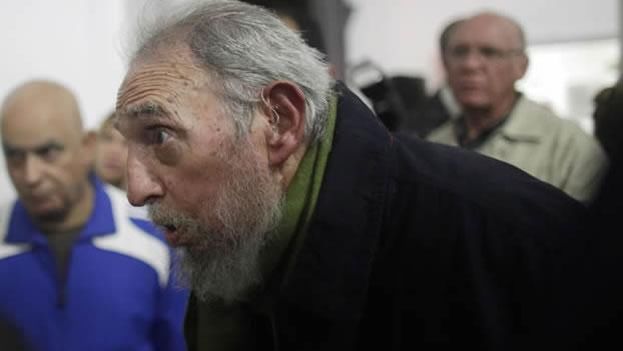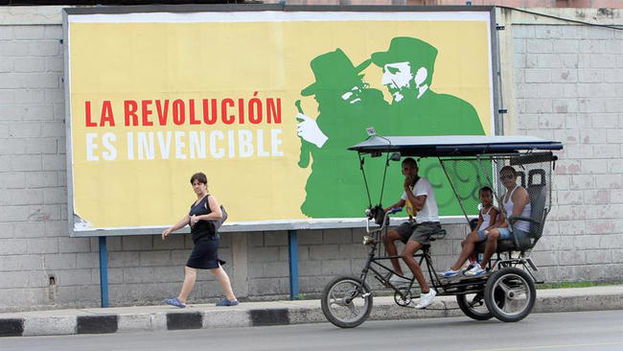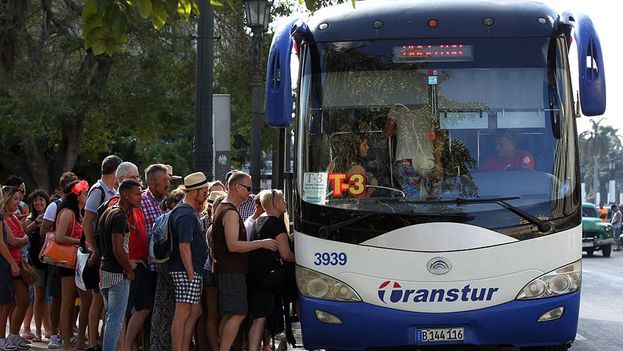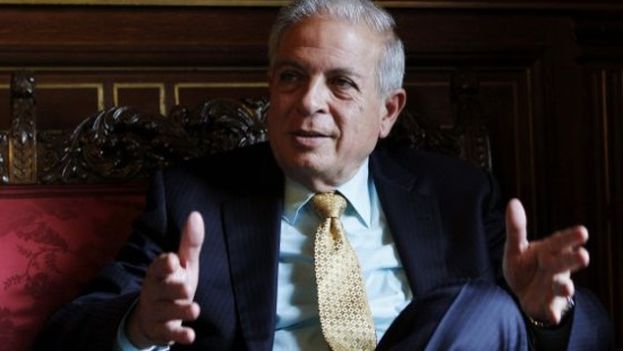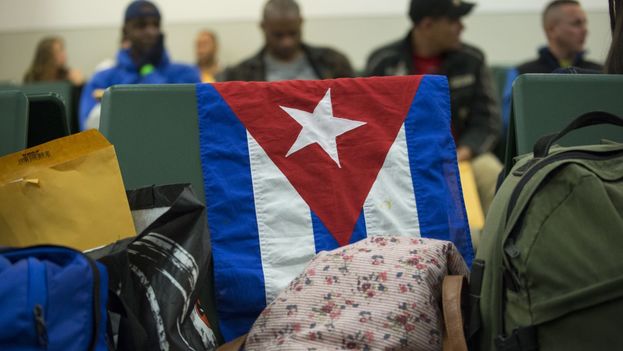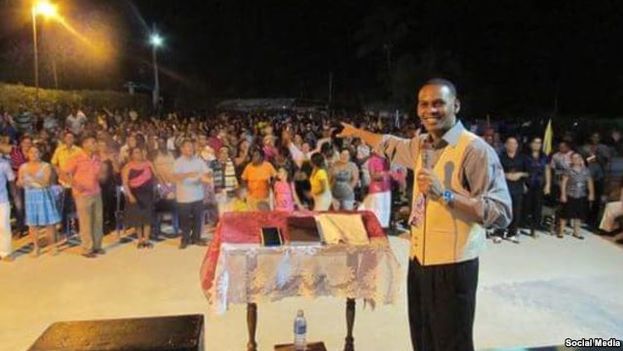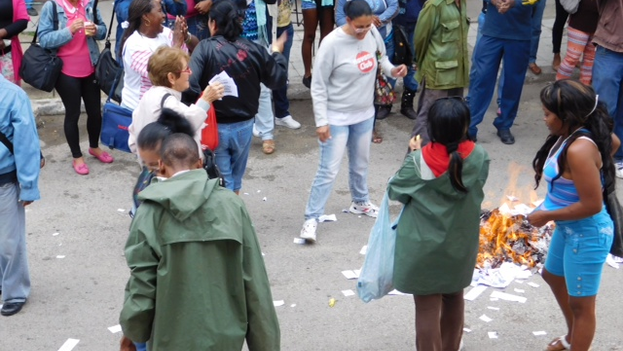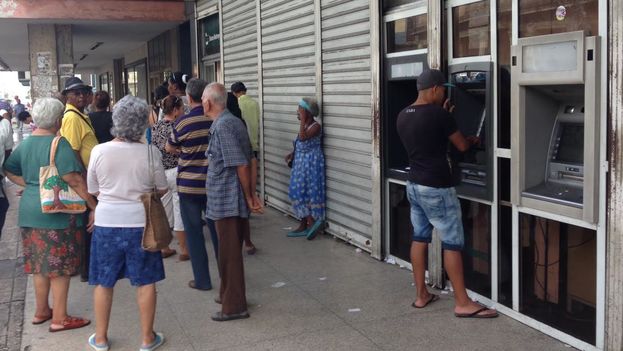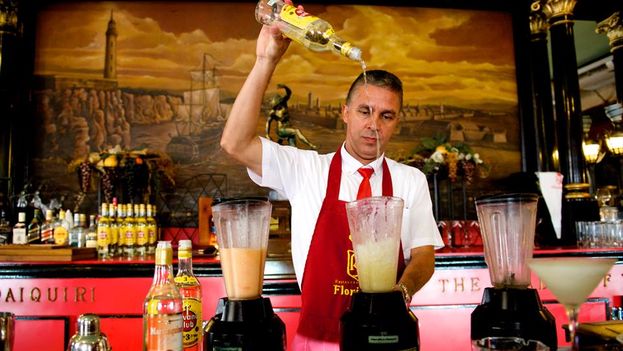During 2015, 3,524,779 foreign visitors arrived on the island, according to the latest official figures, an increase of some 17.4% over the prior year. However, the number of hotel rooms and private homes offering accommodation has not grown just as quickly. Other services, such as airports, food services and transportation, have also appeared to be overwhelmed by the flood.
“Before I sat down here,” he notes from his wooden armchair, “I saw at least ten To one side of his house, a family that owns a private restaurant reinforces Paco’s view. “We are struggling to maintain our menu, because between the shortages and the number of tourists that are coming it’s getting very difficult,” says Zoila, the restaurant’s cook. continue reading
The market stalls show the effects of the increased demand. Every day 5,000 tourists visit Viñales, slightly more than one-sixth of the number of residents. They come looking for products like fresh fruit, lobster, shrimp, rum, beer and, of course, the local tobacco. “Sometimes we have to go to other towns to find papayas and oranges for breakfast,” says a woman who rents rooms to tourists.
She acknowledges, however, that she is “happy” with the surge of visitors. “Bring more, we’re profiting,” she repeats a very popular phrase exuding optimism, although she would like to improve the town’s infrastructure, “to solve these bottlenecks.”
There are 60 private sector restaurants in the Viñales valley with a high demand for vegetables, fruits and meats. A good share of them are supplied by the illegal market and buy directly from the farmers. “We only have imported beer,” says a sign outside one private restaurant. The local beers, Cristal and Bucanero “are not available because the ‘yumas’ [foreigners] arrive very thirsty,” a waiter comments jokingly.
A few yards away, a young man offers horseback rides through the valley for five convertible pesos for twenty minutes. “All my animals are busy now,” he tells some Canadians want a little cross country trot. “I’m full up, you’ll have to wait for the ones making the tour now to return.” The man started with four horses, and now has nine and is expecting to have fifteen this year.
In Havana, Obispo Street is buzzing at two on a Saturday afternoon. Some pedestrians choose parallel streets such as O’Reilly or Obrapia to avoid the crowds. Tour groups walk slowly with their guides, stopping to take pictures and marveling at an old woman smoking an enormous cigar or a woman dressed up in colonial-era clothing.
The whole place seems like a great Tower of Babel with the different languages heard. Among the millions of visitors who came to the island last year were some 125,000 Canadians, 36,000 Germans, 35,000 French, 32,000 British, 30,000 Spaniards and 26,000 Italians, among other nationalities.
With the beginning of Air China flights, there are also a lot of Chinese tourists beginning to arrive. “I can’t complain,” says Lucia, who rents two rooms near Plaza Vieja in the historic center. “Last year my rooms were occupied almost the whole time. I have spent a long time in this arena and have never seen anything like it,” she said.
The problem, points out the self-employed woman, has been that “the supplies in the stores and the markets haven’t kept up.” Her family has had to search everywhere to buy toilet paper, milk, soap and alcoholic or sweetened drinks, these latter to fill “the minibars in the rooms,” she said.
“Sometimes we have to go out at the crack of dawn to guarantee that there is bread for breakfast,” details Lucia. “This neighborhood has collapsed, there is no way we can maintain quality service if we don’t have an improvement in supplies,” she points out. A simple stroll through the most important stores in the area, among them the centrally located Harris Brothers, confirms her words.
“No, we haven’t had small bottles of water for weeks,” says a clerk on the ground floor when asked about that product. “They are bought by the boxful by the people who rent rooms,” she adds. The same thing happens with “beer, large bottles of Cola, and toilet paper,” she emphasizes.
Old Havana still has its chronic problems of water supply, and with the flood of customers in state and private accommodations, the prices charged by the water trucks have also risen. “There are days when even 20 CUC isn’t enough to get my water tank filled,” comments Lucia.
For Maria del Pilar Macias Rutes, general director of Quality and Operations of the Ministry of Tourism, there is “a challenge to continue to improve quality systems in order to meet the demands of the boom in tourism,” she declared this week on national television. Among them, are “programs to improve the situation in food and beverages, entertainment and shopping,” she explained.
“Havana can’t take any more,” jokes the keeper of a private restaurant near Havana Bay when asked about the volume of foreign visitors who come to his place. “We have already renovated three floors in the place and we still can’t cope,” the man comments proudly, dressed like a gentleman of the eighteenth century to attract more tourists.
The increase in visitors is also noticeable in the availability of transport. A couple of years ago there were few people waiting at the Havana Bus Tour stops, but now the lines are almost like those “for the buses to go to work,” laughs the driver of one of these double-deck buses. For five convertible pesos, the route provides a two-hour tour of the main tourist sites in the city.
The country currently has just over 60,000 rooms, of which 66.5% are in four- and five-star hotels. By 2020 there are expected to be 85,500 rooms with international standards, according to the Minister of Tourism, Manuel Marrero, but the signs are that the growth will have to be faster than programmed. For 2016 barely 3,700 tourist rooms will be added, and 5,600 will be renovated or improved, particularly in Havana, Varadero and Northern Keys.
In the private sector, there is a total of 28,634 licensed housing units, rooms and spaces, but some of them are intended for Cubans or are premises rented for services.
Nor do the airport terminals escape the congestion and saturation of passengers. In the Havana airport, travelers can expect to wait between an hour-and-a-half to two hours from the time their plane lands until they get out the door with their suitcases. The lines at the passport checkpoints “at times are so long they almost stretch to the steps of the plane” says a customs worker.
Customers complain about the stifling heat while waiting at the baggage claim because the air conditioning in Terminal Three, the most modern in the country, barely cools the room. “There is no toilet paper in the bathrooms, and no place to even buy a bottle of water here,” a recently arrived Argentine tourist complained this weekend.
The situation could worsen throughout the year, during which the number of visitors is expected to exceed 3.7 million, according to Deputy Minister of Tourism Mayra Garcia Alvarez; this would be 175,200 more tourists than last year.
Just outside the Havana airport the taxi drivers no longer fight for customers, it is the latter who have to try to get to one of the Panataxis as they are approaching the terminal from the street. Two men were arguing over a cart to carry their luggage. “I saw it first,” protested one, with a French accent. Finally he managed to hang on to it, but it had a broken wheel.
Night falls and tourists are pouring out of the airport to visit a country that cannot cope with meeting their expectations.
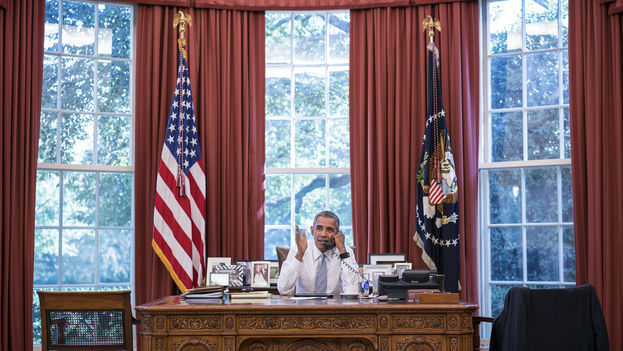
![]() 14ymedio, Yuslier L. Saavedra, La Salud (Mayabeque Province), 8 February 2016 — Mr. President, I am a young Cuban who lives in Cuba and I do not want to leave. Exile hurts and I lack the courage to miss my homeland. I want to stay in Cuba and the reality of my people leaves me with many questions. I think it is up to Cubans alone – all of us without exception – to resolve our problems; peaceful change toward democracy is ours and is in us. I dream of a sovereign people, with self-determination because we have a voice, rights and freedom. I dream of an independent, democratic and sovereign Cuba, where there is a genuine Rule of Law and Democracy, the indispensable foundations for Cubans to be able to achieve prosperity and well-being.
14ymedio, Yuslier L. Saavedra, La Salud (Mayabeque Province), 8 February 2016 — Mr. President, I am a young Cuban who lives in Cuba and I do not want to leave. Exile hurts and I lack the courage to miss my homeland. I want to stay in Cuba and the reality of my people leaves me with many questions. I think it is up to Cubans alone – all of us without exception – to resolve our problems; peaceful change toward democracy is ours and is in us. I dream of a sovereign people, with self-determination because we have a voice, rights and freedom. I dream of an independent, democratic and sovereign Cuba, where there is a genuine Rule of Law and Democracy, the indispensable foundations for Cubans to be able to achieve prosperity and well-being.
